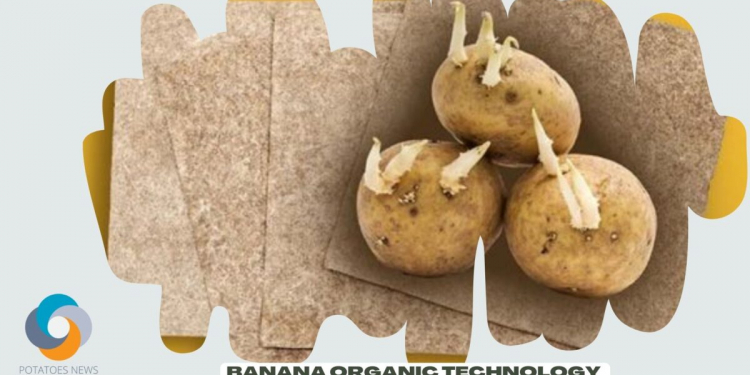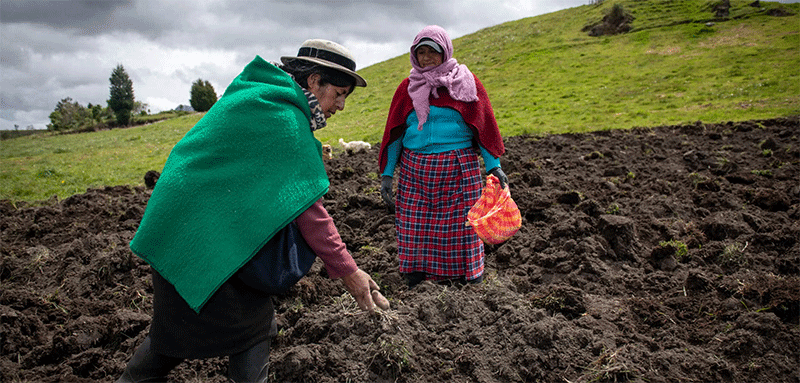The East African potato growers may now have a chance to fight against the invasive and highly destructive potato cyst nematode (PCN) thanks to the ‘wrap and plant’ organic technology.
This solution involves enclosing potato seed before planting, in a thick absorbent paper that is made from the fiber of banana plants. This strategy provides a protective barrier for the plants against damage by PCN.
“The banana-fiber characteristics make the ‘wrap and plant’ paper dense, rigid and sturdy, such that it remains intact in the soil while also allowing the plant’s roots to germinate and thrive. Although the paper is durable, it is also biodegradable, and it eventually decomposes,” Farmers Review Africa wrote.
“Initially, we aimed to understand whether the ‘wrap and plant’ technology can help to improve the delivery and effectiveness of nematicides, the chemical agents that are used to control parasitic worms that damage crops, such as nematodes,” Juliet Ochola (Kenya) mentioned. “We established that when loaded with ultra-low dosages of nematicides, the banana paper enables the chemicals to be released in a slow and sustained manner and very low but effective concentrations. The paper also facilitates the nematicides to be conveyed specifically to the root zone of the potato plants; the infection site of the nematodes, thus preventing contamination to non-target areas and organisms.”
These findings of research led by the International Centre of Insect Physiology and Ecology (icipe), International Institute of Tropical Agriculture (IITA), and North Carolina State University, USA, working with various partners, have been published recently in Nature Sustainability.
The ‘wrap and plant’ technology is a promising boost for food and nutrition security as well as household incomes, as it will help to safeguard the production of potato, East Africa’s second most important staple crop. It also contributes to the vision of a circular economy by transforming banana fiber, often regarded as agricultural waste and a nuisance for farmers, into raw material for a pest control innovation. This could create opportunities for entrepreneurs and farmers. Besides reducing overuse or misuse of chemical pesticides, the ‘wrap and plant’ technology will also support environmental protection by assisting to curtail the growing trend where farmers are compelled to clear forests in an unsustainable manner to create productive fields that are free of PCNs and other pests. Overall, this breakthrough in PCN control demonstrates an environmentally-friendly way to counter disruptions in sustainable food systems.







